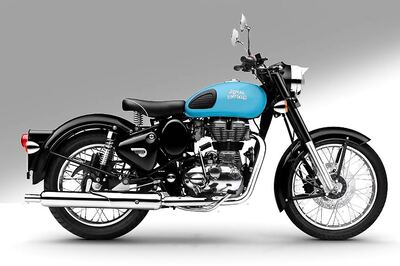
views
window._taboola = window._taboola || [];_taboola.push({mode: 'thumbnails-mid-article',container: 'taboola-mid-article-thumbnails',placement: 'Mid Article Thumbnails',target_type: 'mix'});
let eventFire = false;
window.addEventListener('scroll', () => {
if (window.taboolaInt && !eventFire) {
setTimeout(() => {
ga('send', 'event', 'Mid Article Thumbnails', 'PV');
ga('set', 'dimension22', "Taboola Yes");
}, 4000);
eventFire = true;
}
});
window._taboola = window._taboola || [];_taboola.push({mode: 'thumbnails-a', container: 'taboola-below-article-thumbnails', placement: 'Below Article Thumbnails', target_type: 'mix' });Latest News
With the protest against Koodankulam nuclear power plant
entering its second year, the Madras High Court hearing two petitions against
the project Thursday came down on union ministers, the Atomic Energy Regulatory
Board (AERB) and the Tamil Nadu Pollution Control Board (TNPCB)."Hearing the two petitions, the Madras High Court came
down heavily on the union ministers, saying that they respect only the Supreme
Court and not the other courts. The court also asked how central ministers can
announce KKNPP (Koodankulam Nuclear Power Project) commissioning date when a
case is being heard," P. Sundararajan, a lawyer, told IANS.P.Sundararajan is junior to advocate M. Radhakrishnan
representing G. Sundarrajan who has filed two petitions in the court
challenging the consent given by the AERB and the TNPCB to the Nuclear Power
Corporation of India Ltd. (NPCIL) that is building the plant at Koodankulam in
Tamil Nadu's Tirunelveli district, around 650 km from here.According to Sundararajan, the court also wondered why the
AERB was in a hurry to clear fuel loading."The AERB gave its nod to NPCIL to load the fuel in the
first reactor last week without ensuring the implementation of safety measures
in the KKNPP as recommended by an expert committee set up to review the safety
aspects of Indian nuclear power plants in the wake of nuclear accident at
Fukushima in Japan," Sundarrajan told IANS about his petitions.He said the AERB had earlier submitted to the court in
another case that it would issue clearances only after completion of review and
resolution of reactor commissioning reports and issues relating to the KKNPP,
including the implementation of safety measures after the Fukushima accident.Sundarrajan contends that the AERB has not applied its mind
on the consent order issued by the TNPCB on the tolerance temperature limits
for the KKNPP effluent before giving its clearance for loading of the fuel in
the plant's first unit.According to him, the Environment (Protection) Rules, 1986,
state that thermal power plants using sea water should adopt systems to reduce
water temperature at the final discharge point so that the resultant rise in
the temperature of receiving water does not exceed seven degrees Celsius over
and above the ambient temperature.The TNPCB, in its consent order, allows the tolerance
temperature limit of trade effluent of the KKNPP at 45 degrees Celsius while
the Comprehensive Environmental Impact Assessment for the KKNPP units 1 and 2
and additional units 3 to 6 has limited the tolerance temperature to 37 degree
Celsius, he said.Interestingly, the central government-appointed expert
committee in its report last December said that the seasonal variation in
surface water temperature of Koodankulam Marine Environment ranged from 23
degrees Celsius during monsoon and winter to 29 degrees Celsius during summer,
with an annual average of 26.6 degrees Celsius.Meanwhile, the protest against the two 1,000-MW atomic power
plant entered its second year Thursday with anti-nuclear activists stating that
their fight was now two pronged -- on the streets and within the portals of the
Madras High Court."Our fight is on two flanks -- civil/democratic and
legal. We have been protesting against the project in a non-violent manner for
the past one year. Now public interest petitions (PIL) have been filed in the
Madras High Court. The court has reserved its decision on one, and two more cases
have been filed," said M. Pushparayan, a leader of People's Movement
Against Nuclear Energy (PMAN), said.He said fishermen in Tirunelveli, Tuticorin and Kanyakumari
districts did not go into the sea Thursday to express solidarity with PMANE and
a huge crowd had gathered in Idinthakarai to attend an anti-nuclear power
conference.




















Comments
0 comment